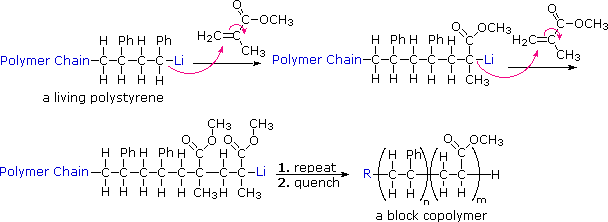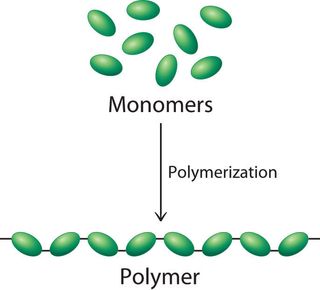Polymers in Building And Construction: Stronger, Less heavy, and A Lot More Long lasting
Polymers in Building And Construction: Stronger, Less heavy, and A Lot More Long lasting
Blog Article
Checking Out the Varied Applications and Advantages of Polymers in Different Industries
Polymers, with their varied variety of residential properties and functionalities, have actually become essential in different markets, each enjoying special advantages from their application. Polymers. From improving security and performance in the vehicle sector to changing medical devices in the healthcare market, polymers play a crucial duty. Their eco-friendly nature is altering the landscape of sustainability techniques. As we dig right into the midsts of polymers in electronic devices, we discover cutting-edge innovations, while their architectural stability transforms the world of construction and framework. The pervasive influence of polymers throughout markets is a testimony to their adaptability and adaptability, forming the future of many industries.
Automotive Sector Applications
Polymers play a crucial duty in enhancing the efficiency and resilience of numerous components within the vehicle field. These versatile materials are thoroughly utilized in the manufacturing of various components, ranging from interior parts to under-the-hood applications. One prominent use of polymers in the auto industry is in the manufacturing of light-weight components. By replacing typical steel get rid of polymer-based options, lorries can accomplish improved fuel effectiveness without endangering on toughness or safety.

Medical Care Industry Benefits
In numerous healthcare applications, the advantages of utilizing polymers are widely acknowledged for their varied series of valuable homes. Polymers play a vital duty in the medical care industry due to their flexibility, biocompatibility, and cost-effectiveness. One of the primary advantages of polymers in healthcare is their ability to be customized to specific needs, such as adaptability, durability, and biodegradability, making them ideal for a wide array of clinical applications.
Polymer-based products are thoroughly used in medical tools, such as catheters, implants, prosthetics, and medicine shipment systems, due to their biocompatibility and capacity to simulate natural tissues. These products can minimize the danger of allergic reactions or rejections, boosting individual safety and end results. In addition, polymers are lightweight, making them suitable for wearable clinical devices and guaranteeing patient convenience.
Moreover, polymers enable the development of innovative therapy methods, such as hydrogels for cells engineering and nanocomposites for targeted medicine delivery. Their convenience of processing and sterilization makes them essential for preserving high criteria of hygiene in health care settings. Overall, the varied benefits of polymers add considerably to advancements in medical modern technology and individual treatment.
Ecological Advantages of Polymers

Furthermore, polymers can add to energy cost savings as a result of their light-weight nature. In sectors such as transport, lightweight polymer materials can help in reducing fuel usage and greenhouse gas discharges. In addition, polymers can enable the advancement of energy-efficient products such as insulation materials that improve energy conservation in buildings.
Moreover, polymers play a vital duty in lowering water air pollution. For instance, the usage of polymer-based purification systems can successfully remove pollutants and contaminants from wastewater, safeguarding water sources check it out and ecosystems. Overall, the ecological advantages of polymers make them beneficial properties in advertising sustainability and environmentally friendly practices throughout different industries.
Polymers in Electronic Devices and Innovation
Thinking about the enhancing need for ingenious and sustainable remedies in contemporary industries, the integration of advanced polymer modern technologies in the world of electronics and technology has actually arised as a critical method for driving efficiency and efficiency. Polymers have changed the electronics market by enabling the manufacturing of lighter, much more adaptable, and resilient digital gadgets. From mobile phones to clinical devices, polymers play a crucial function in boosting product layout and functionality.
One significant benefit of polymers in electronics is their protecting residential properties, which help safeguard fragile electronic elements from ecological factors and electric disturbance. Additionally, polymers are crucial in the development of versatile screens, wearable technology, and printed electronic devices, supplying endless opportunities for developing smart and interconnected gadgets.
In addition, making use of polymers in digital product packaging has actually led to improvements in miniaturization and thermal monitoring, improving the general efficiency and integrity of digital systems. As technology remains to develop, the adaptability and flexibility of polymers will most certainly drive further development in the electronic devices sector, forming the future of modern technology.
Role of Polymers in Construction and Facilities
The assimilation of innovative polymer products in building and construction and framework tasks has actually changed the way structures are designed and constructed in modern times. Polymers offer numerous benefits in the building and construction industry due to their versatility, resilience, and cost-effectiveness. One essential role of polymers in construction is their usage in coatings and sealants, supplying security against ecological variables such as dampness, UV radiation, and rust. Furthermore, polymers are used in the manufacturing of lightweight and high-strength composite products, improving the structural integrity of structures while minimizing overall weight.
Moreover, polymers play an important role in lasting building methods by allowing the growth of energy-efficient structures. Shielding materials made from polymers aid regulate interior temperatures, great post to read reducing the requirement for heating and cooling down systems and ultimately reducing energy usage. The use of polymer-based compounds in infrastructure jobs such as bridges and roadways enhances their durability and minimizes maintenance prices. In general, the unification of polymers in construction and facilities displays their substantial influence on contemporary design practices.
Conclusion
To conclude, polymers play a critical role in different markets such as vehicle, medical care, ecological, electronic devices, and building and construction. Their functional properties make them important in creating innovative solutions and products. From boosting gas performance in lorries to enhancing clinical tools, polymers supply countless benefits. In addition, their influence on reducing waste and promoting sustainability highlights their significance in contemporary applications. The prevalent usage of polymers shows their considerable contribution to advancing innovation and boosting lifestyle.
Report this page